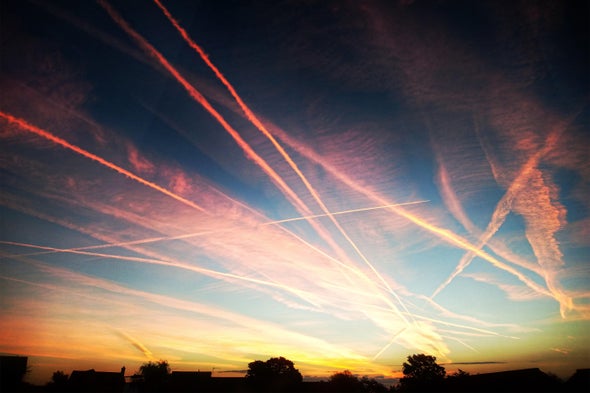A panel of independent experts urged international leaders to set rules for the stratosphere and solar geoengineering

CLIMATEWIRE |A panel of climate experts convened by the United Nations is calling for international regulations to extend into the stratosphere.
The recommendation — detailed ina reportreleased Monday — could help manage the risks associated with spraying sunlight-reflecting aerosols dozens of miles above the Earth’s surface. Such stratospheric aerosol injection is largely untested and potentially harmful, but it’s attracting attention as an emergency measure to avoid catastrophic climate change.
“This group unanimously suggests [stratospheric aerosol injection] be considered within a new broader framework for the governance of the stratosphere,” the experts wrote in the report by the United Nations Environment Programme, or UNEP. “Other activities such as rocket launches may also be considered as little regulatory or governance structures presently exist for the stratosphere.”
There is growing interest from scientists, governments and philanthropists in researching stratospheric aerosol injection, a form of solar radiation management, or SRM (ClimatewireFeb. 27). Such approaches, which also include altering the density of certain clouds, have the potential to temporarily lower global average temperatures.
But the field of study, also known as solar geoengineering, remains controversial because it doesn’t address the primary cause of climate change — the burning of fossil fuels — and could lead to unintended consequences. Releasing aerosols into the stratosphere, for instance, could damage the ozone layer, which protects people and the planet from the sun’s cancer-causing ultraviolent rays.
The UNEP report was written by Govindasamy Bala, an atmospheric and ocean sciences professor at the Indian Institute of Science, along with eight other independent experts from around the globe.
They urged international leaders to not only adopt stratospheric regulations, but also support additional research of SRM. The experts also suggest that leaders consider establishing regulatory frameworks that differentiate between small-scale experiments and large-scale interventions in the Earth’s climate system.
Inger Andersen, the executive director of UNEP, warned against the latter intervention in a forward to the report.
“Even as a temporary response option, large-scale SRM deployment is fraught with scientific uncertainties and ethical issues. The evidence base is simply not there to make informed decisions,” she wrote. “We only have one atmosphere. We cannot risk further damaging it through a poorly understood shortcut to fixing the damage we already caused.”
David Fahey, the director of NOAA’s Chemical Sciences Laboratory, was the only U.S. government official who helped co-author the report. The experts, he said, held a formal two-day meeting last May to prepare the U.N. secretary-general for a potential general assembly discussion of the issue.
However, the U.N. general assembly did not take up SRM in its meeting last fall. The UNEP report was then produced over “quite a number of Zoom calls,” Fahey told E&E News.
So far, the only nation to deal with questions related to the stratosphere, he noted, was Sweden. It rejected a proposed test in the stratosphere.
“They tried to create a structure, but it’s just really difficult,” Fahey said. “I’m very interested in these conclusions gaining some traction in the U.N. and in individual countries.”
Reprinted from E&E News with permission from POLITICO, LLC. Copyright 2023. E&E News provides essential news for energy and environment professionals.
ABOUT THE AUTHOR(S)
West Corbin is a reporter at E&E News.
John Violet is a reporter with E&E News.
Note: This article have been indexed to our site. We do not claim legitimacy, ownership or copyright of any of the content above. To see the article at original source Click Here













